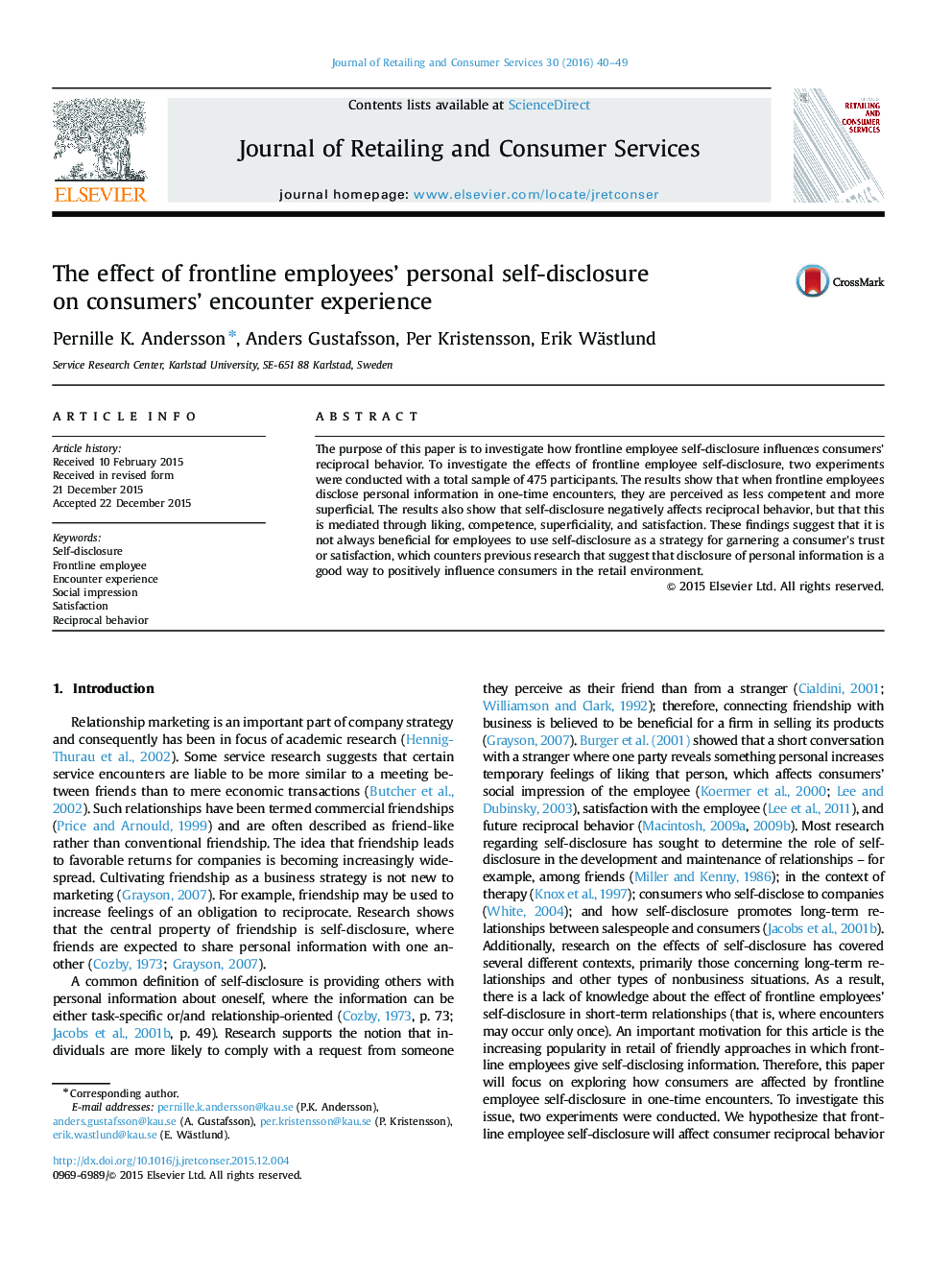| Article ID | Journal | Published Year | Pages | File Type |
|---|---|---|---|---|
| 7433891 | Journal of Retailing and Consumer Services | 2016 | 10 Pages |
Abstract
The purpose of this paper is to investigate how frontline employee self-disclosure influences consumers' reciprocal behavior. To investigate the effects of frontline employee self-disclosure, two experiments were conducted with a total sample of 475 participants. The results show that when frontline employees disclose personal information in one-time encounters, they are perceived as less competent and more superficial. The results also show that self-disclosure negatively affects reciprocal behavior, but that this is mediated through liking, competence, superficiality, and satisfaction. These findings suggest that it is not always beneficial for employees to use self-disclosure as a strategy for garnering a consumer's trust or satisfaction, which counters previous research that suggest that disclosure of personal information is a good way to positively influence consumers in the retail environment.
Related Topics
Social Sciences and Humanities
Business, Management and Accounting
Marketing
Authors
Pernille K. Andersson, Anders Gustafsson, Per Kristensson, Erik Wästlund,
